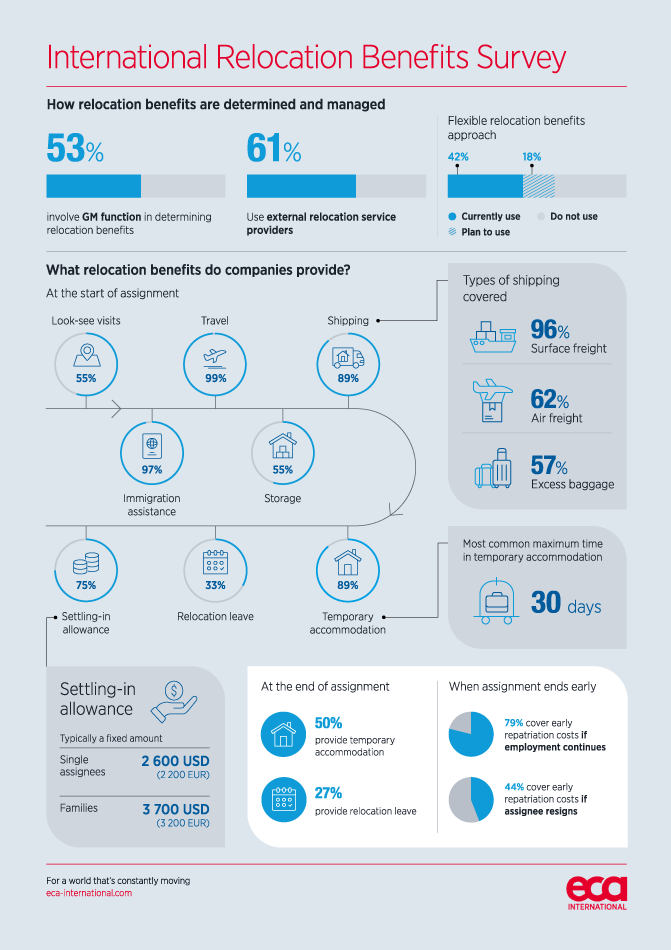Despite ever-present cost pressures exacerbated by the Covid-19 pandemic, the provision of comprehensive support to employees relocating internationally has remained key to ensuring that assignments start and end well. ECA’s recent International Relocation Benefits Survey showed that even with an unsettled global situation, overall provision of relocation benefits has varied little in recent years, though the way the benefits are provided is changing. There is an increased focus on flexibility to ensure that assignees get the tailored support they need for their situation in the most cost-effective and sustainable way. Some of the key survey highlights are outlined below.

Perhaps unsurprisingly, it is almost universal for organisations to cover the cost of travel to and from the host country for long-term international assignments. In most cases the policy for relocation travel is aligned to the organisation’s business travel policy.
Despite delays in ports and the soaring cost of shipping containers, most companies still cover the cost of transporting assignees’ belongings to and from the host location. Over 90% of those who provide shipping pay for surface freight, with the most common limit for both single adults and couples being 30-33 m3 (equivalent to a 20-foot container). Air freight and excess baggage are less commonly covered.
Three-quarters of respondents pay a settling-in allowance, split almost equally between those that only pay it at the start of long-term assignments and those that do so at both the start and end. Settling-in allowances are typically paid as a fixed amount, either the same amount for all assignees or fixed based on certain criteria linked to factors such as family size. There is significant variation in allowance levels between companies and by region.
Global mobility (GM) functions play a key role in determining which relocation benefits are provided, with over half of respondents reporting that their GM team has a part to play in this area. In addition, the use of external relocation service providers during the relocation process is common, with 61% of companies involving these providers to help with managing relocation.
A need for increased flexibility has been a theme across many aspects of mobility in recent times, and this is reflected by the fact that 42% of companies now use a flexible approach to relocation benefits, most commonly by providing a lump sum cash allowance for the assignee to allocate as required. This is likely to increase, as a further 18% are considering implementing a flexible approach.